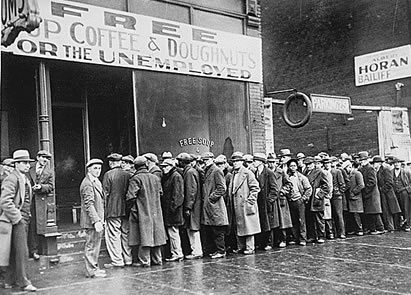Two weeks ago, I wrote a post criticizing Mark Brand’s decision to sell Save-on-Meats breakfast sandwiches and fuzzy feelings for $2.25. There’s little in Brand’s scheme besides self-promotion and paternalism (he’s not even donating the sandwiches!), but as food bank drives and other holiday charity campaigns start to festoon the airwaves, it’s time to take a critical look at the power dynamics and logic of consumer-based solutions to social issues like homelessness and poverty.
Take Vancouver’s outdoor clothier Arc’teryx’s plan to supply unique Gore-Tex ponchos to DTES homeless. The company has produced 700 waterproof, windproof garments from excess factory material and will distribute them via the Vancouver Police Department’s Homeless Outreach program. On the surface, this gesture appears to beat Brand’s scheme cold: the homeless need protection, Arc’teryx is donating the material and doesn’t appear to profit from the exchange. Nevertheless, many of the problematic elements so pronounced in Brand’s campaign persist.
The first and most obvious is self-promotion. While not as conspicuous or ubiquitous as Save-on-Meats, Arc’teryx will still benefit from free, positive publicity which will financially profit the company. The medium of that publicity, the homeless receiving the ponchos, have no say in their role in this dynamic and will receive nothing monetary beyond the poncho itself. Actors are paid in advertisements and commercials, but for some reason the deployment of low-income people in similar contexts is rarely compensated.
Second, like Save-on-Meats, the project’s motivation is grounded in paternalism. Brand’s tokens operate on the assumption that panhandlers can’t be trusted with money (while the more affluent can, naturally), which in turn buttresses popular stereotypes of alcoholism and drug addiction. Similarly, we can bet that the recipients of these ponchos were not consulted as to what garment would best benefit them. Of course a poncho is desirable when it is the only means to protect oneself from the elements, but low-income people, like their middle-class counterparts, prefer to exercise some agency in how best to outfit themselves. The cruel maxim “beggars can’t be choosers” takes on new significance when actual human lives and welfare are at stake.
Third, and perhaps most crucial, both these plans are rooted in consumerism, which not only will never solve the serious social problems facing low-income people, it remains one of those problems’ key causes. Treating the lack of adequate winter clothing as a consumer problem — that is, a problem which the right product can fix — ignores the entrenched barriers and prejudices which prevent homeless people from solving these problems themselves. See, for example, the panhandler who was recently given $100 boots by a police officer only to be found barefoot again a few days later. “Those shoes are hidden. They are worth a lot of money,” Mr. Hillman said in an interview on Broadway in the 70s. “I could lose my life.”
Social media is already swooning over the collectibility of these unique designer items. Not to mention when you have $26 a week to feed yourself, the folly of spending hundreds of dollars on a raincoat is rather pronounced. As well-meaning as Arc’teryx may be, the poncho does nothing to repair the instability and precarity of low-income people’s lives. Consumerism won’t offer long-term housing or medical support; its solutions prolong an interminable “meantime” in which stop-gap measures with the best intentions behind them act only as barriers to real change.
Janet Poppendick’s Sweet Charity? notes that emergency food operations like soup kitchens (and, arguably, Save-on-Meats tokens) are actually proliferating while poverty and inequality continue to grow at unprecedented levels. Why? In the same way governments continue to offload funding for public necessities like education and health care onto private debt, emergency food has replaced the social safety net to the extent that we now feed our most vulnerable with our own waste and excess.
In fact, low-income people often find themselves proposed, perversely, as a solution to waste. See Wildrose Leader Danielle Smith’s grotesque suggestion that spoiled meat should be cooked and fed to Calgary’s homeless. The contradictory proposal that consumerism can solve the problems it produces is no less wrongheaded. It’s notable that Smith remains incredulous that her comments raised such ire from anti-poverty activists. When good intentions represent the only condition of a project’s ethical worth — consequences be damned — amazement and disbelief remain the only responses available.
The fact is the homeless are bad consumers. It’s one of the reasons street drugs which inhibit our ability to consume like heroin and cocaine are so demonized while dangerous weight-loss drugs and antidepressants which return unproductive individuals to the workforce routinely make it past public health officials. It’s also why upscale restauranteurs and café owners find themselves increasingly disconnected from their low-income neighbours: no matter how many social entrepreneurship programs you fund, low-income people can’t survive and flourish on six dollar lattes. The proliferation of “Community Development” positions among agents of gentrification announces the expansion of that distance rather than its demise – you don’t need liaisons to talk to allies and partners who engage on equal footing.
Until self-proclaimed community partners begin engaging their low-income and marginalized neighbours with reciprocity and transparency in mind, consumer-based solutions will continue to be anything but.




